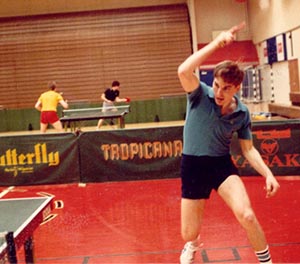USATT Election
Below is Part 2 of my series of blogs about my plans if elected to the USATT Board. Here is my Election Page, and here's the USATT Election Notice. Here's my blogging schedule:
- Monday, November 24: Create a Nationwide System of Regional Team Leagues
- Tuesday, November 25: Create State Associations
- Wednesday, November 26: Create a USATT Coaching Academy to Recruit and Train Professional Coaches
- Monday, December 1: Turn U.S. Open and Nationals into Premier Events
- Tuesday December 2: Create a Professional Players Association, and Professionalize the Sport
- Wednesday, December 3: Other Issues (Balloting opens on this day, and continues until Dec. 27.)
Create State Associations
=>The Goal: Dramatically increase membership by organizing on the local level.
The country is too big to have everything run by one centralized group. We should model this on tennis or the regional table tennis associations all over Europe.
Some states already have state associations, and if so, that's great - we don't have to do anything other than offer support. (Some very large states may have two or more associations, such as California.) But most don't, and most current ones aren't very active - we need to work with those ones to organize at a higher level. We need truly active state associations that can truly run table tennis in their state or region. I was involved in tennis leagues and saw how effectively a volunteer-run state association can operate. (This doesn't mean it's all volunteer - there are also full-timers involved. We need to find the right mix.)


 Photo by Donna Sakai
Photo by Donna Sakai


